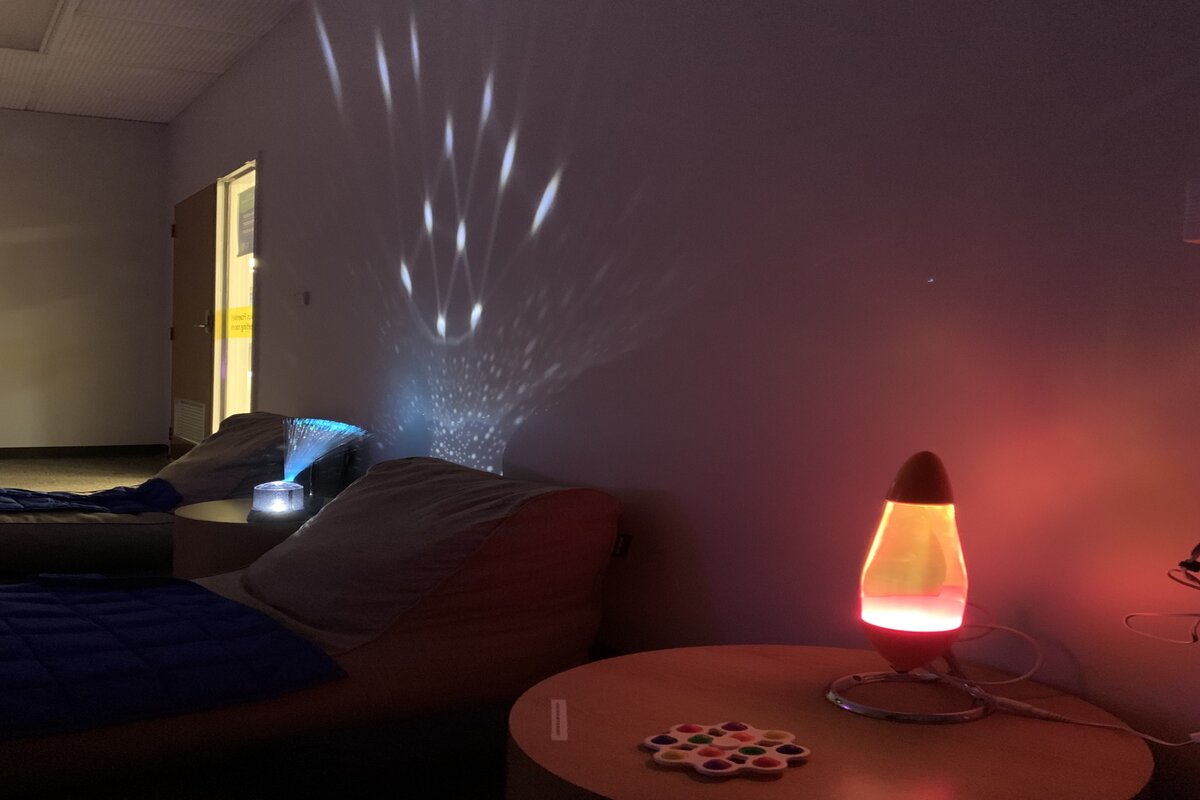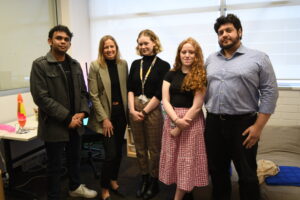
For people that experience “sensory overload” having access to quiet and low-lit spaces provides a circuit breaker allowing them to recharge. For others, the opportunity to stimulate their senses using fidgets and other sensory tools allows them to decompress.
Research shows that as many as 1 in 5 people experience symptoms due to sensory processing sensitivity.
A pilot has started at Flinders University’s Bedford Park, Flinders Medical Centre and Sturt campuses where three dedicated sensory room pop-ups have been set up for students, staff and visitors.
The pilot is being run by Flinders Neurodivergent Study Support and Advocacy (FNSSA) – a student club that was founded just over a year ago and already has more than 300 members, and growing. The pilot is being supported by the Flinders University Library, which identified and provided the rooms to FNSSA.
Sensory dysregulation is a common experience for neurodivergent students in traditional learning environments, leading to anything from mild discomfort and difficulty concentrating in class to panic attacks and meltdowns.
Common neurodivergent presentations include attention deficit hyperactivity disorder (ADHD), autism, sensory processing disorder, tourettes, epilepsy, dyslexia, dyspraxia, dysgraphia and dyscalculia.

It is estimated one in five Australians is neurodivergent, but the true number is unknown as there are many barriers to diagnosis. FNSSA is dedicated to supporting all students across campus that may benefit from opportunities such as access to sensory spaces.
“These sensory spaces are not only important in a practical sense; their presence signifies that neurodivergent students and staff are represented and welcome at Flinders University” says Chloe Walton, FNSSA Secretary and leader of the Sensory Space project.
Sensory overload can be triggered by a particular event or prolonged exposure to low-grade sensory inputs such as having to navigate crowds, bright lights or higher/lower temperatures.
The pilot will also incorporate a survey for sensory room users to determine the effectiveness, location and future demand amongst students and staff for sensory rooms on campuses.
“Having these dedicated sensory rooms available enables students experiencing sensory dysregulation to ground themselves and self-regulate in a safe way.” says FNSSA President Ayisha Fearnside.
“Everything within the spaces is dynamic and adjustable to individual needs – there are multiple seating options, adjustable lights and blackout curtains, so individuals with a wide variety of sensory overload and sensory seeking needs can benefit.”
Flinders University Deputy-Vice Chancellor Professor Romy Lawson says the new sensory rooms have been purposefully located away from food, lights and loud noises and they are separate to study rooms and allocated quiet study areas that already exist.
“Although anyone can experience sensory overload, those who are neurodivergent usually experience it to a higher degree and more frequently so having places to get away and allow an individual to self-regulate is important.”
“The university is happy to support this FNSSA pilot and looks forward to learning about the feedback staff and students provide to further enhance the sensory spaces.”
Flinders’ new city campus will include quiet spaces with moderated lighting from 2024.

